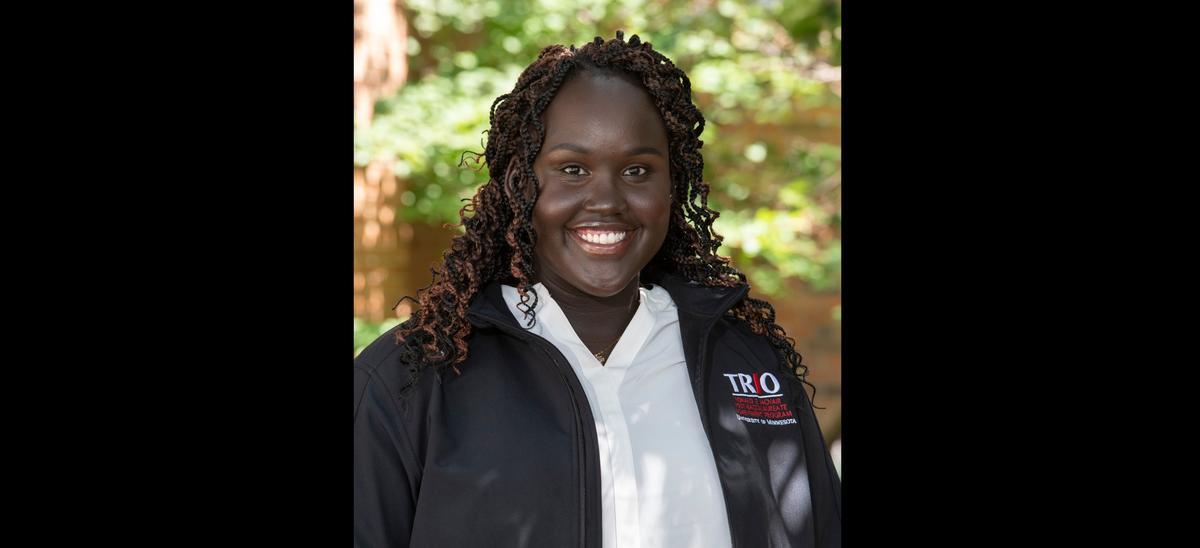As Friday Gora prepares for a career as a teacher, she looks to her potential pupils for guidance.
“There’s so much we can learn from the younger generations,” Gora says. “They truly inspire me as a future educator.”
Extending support to younger generations is second nature to Gora because she has benefited from such guidance herself. She decided to attend UMD with the help of Educational Talent Search, a government-funded, college prep program.
Now Gora is leveraging her participation in the McNair Scholars program to make a difference for others. The prestigious program provides support and education to first-generation, income-eligible, and underrepresented students who are looking to apply to graduate school.
For Gora, a senior in the Integrated Elementary and Special Education program, participating in the program means less worry about graduate school. “Most of us, we’re first-generation students,” she says. “We need that support, that education that allows us to continue our own education.”
Each McNair scholar is paired with a faculty mentor whose research matches the student’s interest for a summer apprenticeship. Gora spent last summer researching at the University of Minnesota. She partnered with Abigail Rombalski, longtime secondary school educator and lecturer in the Racial Justice in Urban Schooling minor, for a project. Gora later presented the research at the UCLA McNair conference in California.
The aim of their research was to engage youth at a school to improve their school district. The research was based on what students and their families hoped to see in the future, in collaboration with the district. The focus areas depended on what the school district wanted to prioritize but included appreciating different cultures, creating inclusive classrooms and ensuring students are getting the support they need. The students themselves conducted the research, gaining valuable experiences and opportunities in community engagement.
Community & Belonging
The McNair program emphasizes building a community with other McNair scholars as a way to support each other throughout their careers. During the project, Gora and another McNair scholar were paired up to work at several school districts to facilitate discussion between students.
The students met frequently with Gora and the other scholar. They worked together to understand the question, develop answers, and even create a presentation about their process. In the end, the students were able to identify potential solutions for the concerns of the school district and present their solutions.
The program lasted 10 weeks and Gora chose to stay with the students longer, until the end of their project. “The students were incredible … they were so brave in advocating for their needs and presenting that information to the school district,” Gora states. “Classrooms need to be spaces where students feel like they belong.”
Ultimately, Gora is walking away with a sense of community: both belonging to one and helping create one.
“You need a community to thrive as an individual. There’s just no way to do things by yourself!” she says. “Passing that lesson down is so important—we all stand on each other’s shoulders, but other people stand on our shoulders.”
About the Integrated Elementary and Special Education program
This story was written by UMD student Erika Doetkott, who is majoring in Communication Sciences and Disorders. Erika assists Lissa Maki with communications for the College of Education and Human Service Professions.
